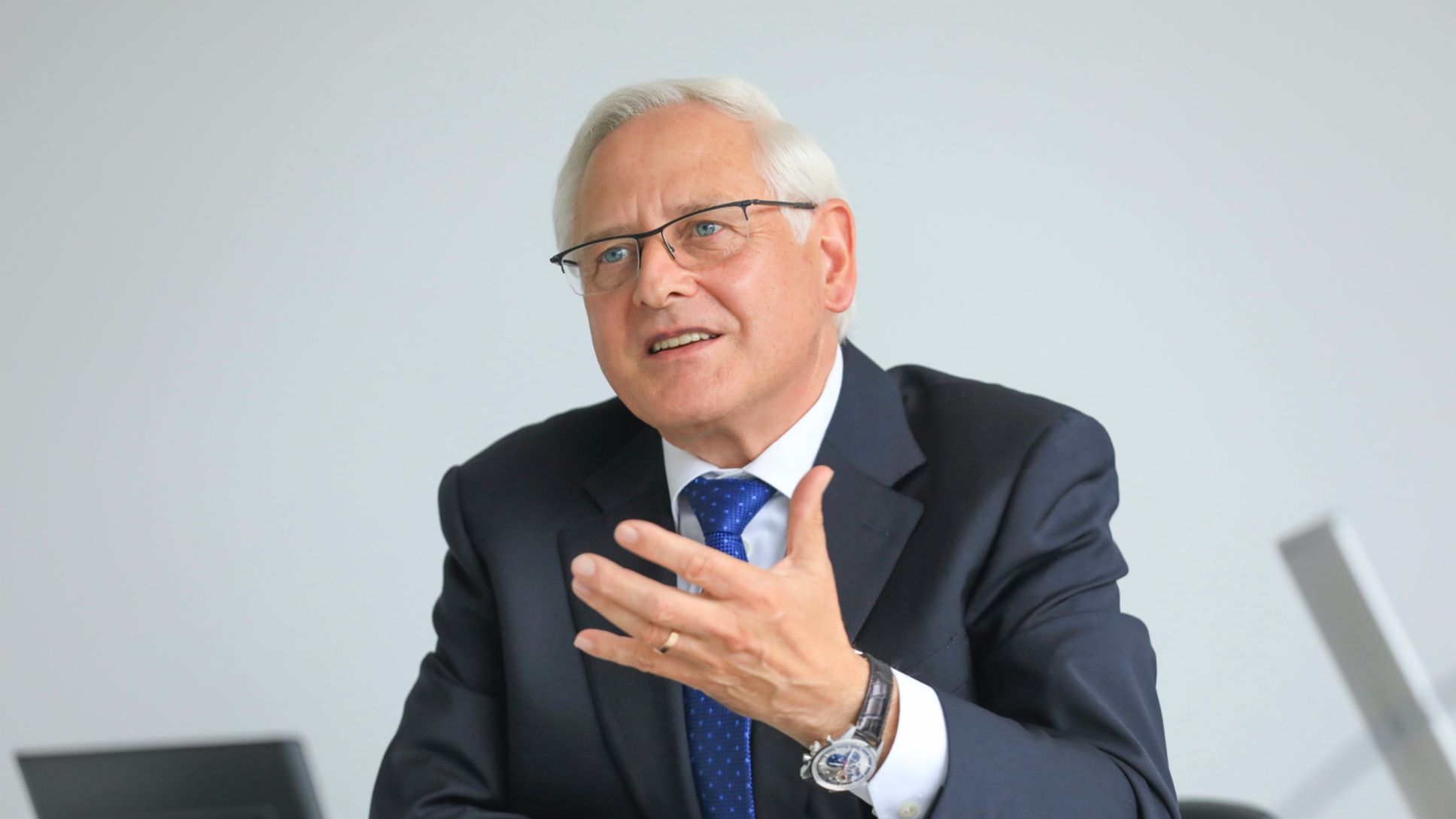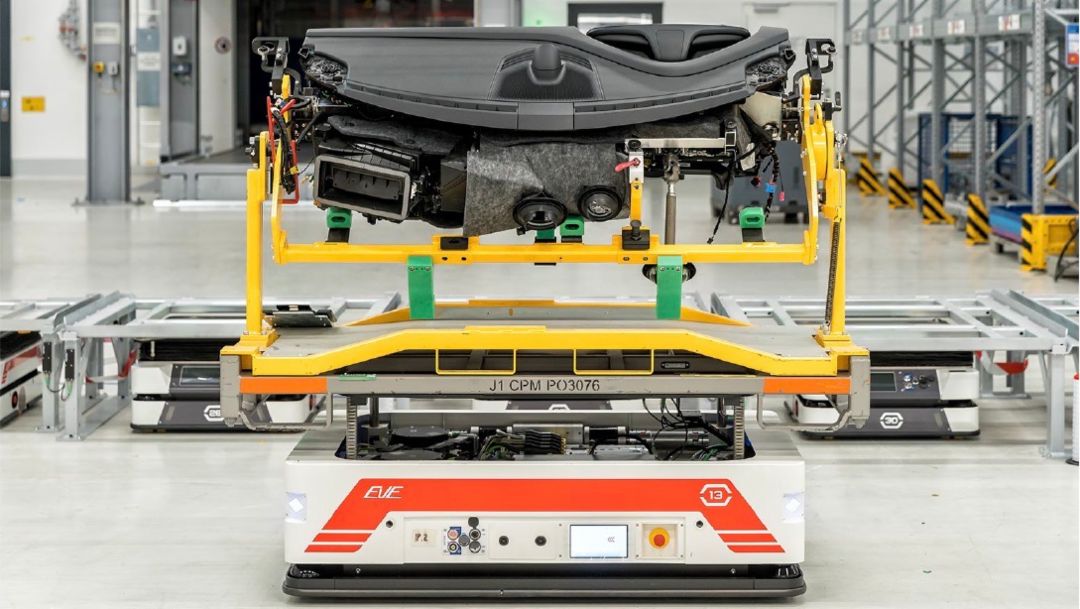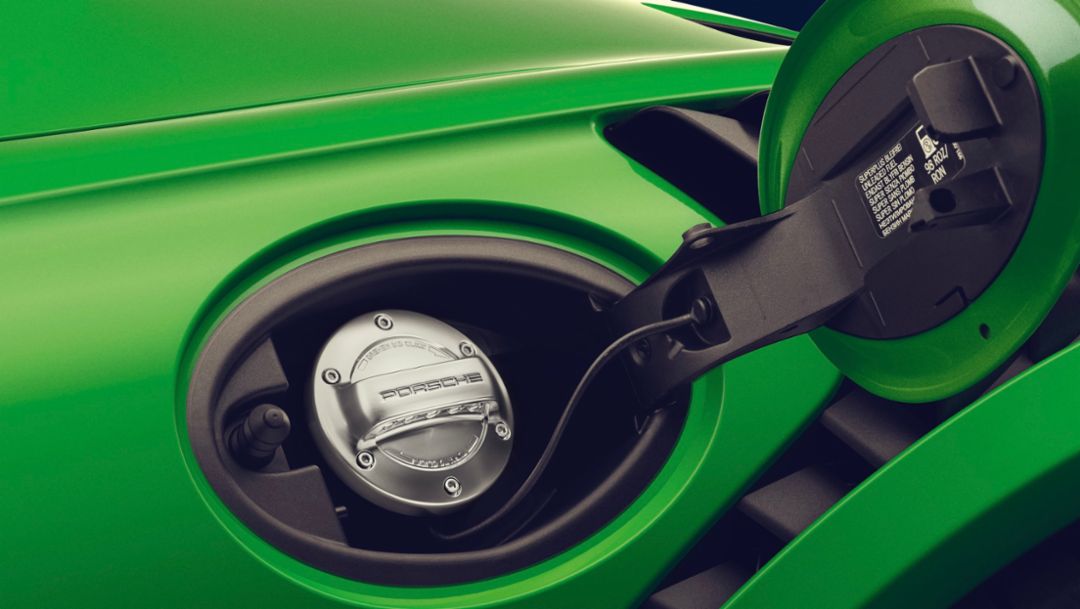Mr. Städter, what is the current status of the supply chain at Porsche?
Uwe-Karsten Städter: We have a stable supply chain. We are supplied with parts, but we continue to be vigilant. We are in contact with suppliers on a daily basis. This gives us a good overview of higher rates of illnesses and COVID-19 cases in the workforce at our suppliers.
How can Porsche protect itself against the temporary closures of suppliers such as recently at ZF?
Städter: We are in the process of building up stock of all parts for our product lines. Looking ahead, we aim to have enough parts for at least two weeks of production. This will give us enough room to breathe. But where delivery is made directly to the assembly line timed to the second, things are more difficult.
Many suppliers are in a critical position. Will you also provide financial support where necessary?
Städter: Yes. You don’t leave a partner stranded in a crisis. An example of this is the Rosenheim-based company Serva: the company develops and supports us with automated guided vehicle systems in the production of our fully electric Taycan sports car. Serva ran into financial difficulties as a result of the coronavirus crisis. In July, we decided to take over the company in order to keep business operations running, to continue to use the development expertise there, and also to secure qualified jobs on site.
Did you take any other measures?
Städter: We implemented various support measures to help suppliers. For example, Porsche made down payments on development costs and tools to suppliers earlier than contractually agreed. In general, the aim is to reduce the financing pressure on suppliers and to leave them more air to breathe. It’s important to talk about problems early on and be transparent. That is why we help with advice in a difficult situation and also send our own employees to the suppliers as support in order to provide process backup. We also provide contacts – for example to banks – where necessary.
But you yourself are also under enormous cost pressures, aren’t you?
Städter: We are all subject to intense competition. We see this as an incentive to drive down our fixed costs where possible. But this can’t be done with a sledgehammer. In the end, it’s always more beneficial to support a supplier rather than risk creating a gap in the supply chain.
So you don’t turn the screw on prices like others do?
Städter: Obviously, we are always looking to optimise our material costs. We expect competitive productivity from our suppliers. That benefits both parties - the supplier and us. But you have to take a closer look: there are some products that, in terms of added value, offer less scope as regards productivity. There are often higher savings to be found in complex logistics chains. The same applies to parts relating to the transformation to e-mobility. This is where we take a closer look. In other words: in terms of costs, it depends on the respective components – demanding a general discount on all parts is not the answer.
With the rise of electric mobility, is there now a trend towards doing more in-house again?
Städter: In the past, the customer’s purchase decision could be clearly analysed. An engine was obviously from Porsche. That’s now changing – we are re-assessing our core competencies. What is perfectly clear is that even in terms of electric mobility, it’s important to retain control of those things that influence driving performance and customer satisfaction. Like the gearbox and chassis design, which we do ourselves. These and other components allow our all-electric Taycan to accelerate from zero to a hundred in just 2.7 seconds.
Does Porsche have plans for its own in-house battery cell production?
Städter: The chemicals inside the battery cell are the key to the battery’s performance. We are investigating this in research projects or in trials in the field of motorsports. However, we are definitely not currently planning our own industrial cell production - for example for the Taycan - at Porsche.
"By 2025, we want half of our vehicles to be electric." Uwe-Karsten Städter
And not for future model series such as an electric 718 Boxster and Cayman?
Städter: The Center of Excellence for Battery Cells in Salzgitter plays a key role in the battery strategy for the Volkswagen Group. A joint venture with NorthVolt has also been established to build a 16 gigawatt-hour battery cell factory. It is conceivable that we could work together with this manufacturer on future generations of vehicles.
How much has electric mobility changed the supplier setup at Porsche?
Städter: By 2025, we want half of our vehicles to be electric. This can be achieved only with new technologies, parts and suppliers. Around one quarter of suppliers are completely new to us, and another third has changed its product portfolio. The electrification of our products is not only a difficult challenge for suppliers. We are also entering new territory and building up knowledge and expertise for electric mobility.
Are new market players such as LG exploiting their position of power with battery cells?
Städter: We maintain a professional relationship with all of our suppliers and communicate with them directly. It is not in the interests of any of our suppliers to annoy us.
There are now also other topics on the agenda, such as e-fuels. What is the status as regards finding partners?
Städter: Construction of our e-fuel pilot plant in Southern Chile will already start in spring 2021. Together with other partners, we will test the environmentally-friendly production of green synthetic fuels in an industrial process there. We are aiming to set a milestone in decarbonisation. E-fuels produced with renewable energies offer the advantage that both cars with combustion engines and plug-in hybrids be driven almost climate-neutrally. And the conventional network of filling stations can also still be used. We will soon be using the fuel manufactured in Chile in our own vehicles. We are first considering its use in the field of motorsports, and then extending it in the future to our existing cars. However, it is perfectly clear that Porsche is not going to become a fuel manufacturer.
The first drops of fuel will probably be very precious and expensive, will they not?
Städter: Prices for synthetic fuels are currently still too high. But this will change with increasing quantities. In the first phase of our e-fuel pilot project, we are aiming for an annual production of 130,000 litres – but plan to gradually increase this volume.
How far are you in your efforts of establishing a fully sustainable supply chain?
Städter: Today, sustainability is a decisive order award criterion at Porsche, and our partners are open to this. But we have a long way to go, and some of our suppliers are faster than others. We monitor our suppliers with a sustainability rating. We examine the risks in terms of compliance, social responsibility and the environment. This takes into consideration criteria such as the use of power from renewable energies, environmental certification and compliance with human rights standards. If suppliers are not willing to take the correct measures, we will stop working with them.
Have you ever thrown anyone out?
Städter: Yes, it has happened that we have parted company with suppliers. But before this happens, we provide suppliers with a catalogue of measures that they need to take to improve their sustainability rating. If this doesn’t work, we may then not award a contract. However, we act with a sense of proportion. We support suppliers in introducing suitable sustainability measures.
When will the supply chain be carbon-neutral at Porsche? And will a circular economy ever be possible?
Städter: It is difficult to give a specific timeframe. The transformation to electric mobility has only just begun. We have various goals for establishing a carbon-neutral supply chain. One benchmark is the use of renewable power for energy-intensive production processes. That is relatively easy to achieve on a tier-1 level. The conditions are considerably more difficult with regard to the mining of raw materials. That involves a lot of hard work. We want to continue expanding the use of sustainable materials such as recycled material or renewable resources in the long term. This will bring us significantly closer to achieving a circular economy.
Info
Text first was published in Automobilwoche.
The interview was conducted by Michael Gerster.


